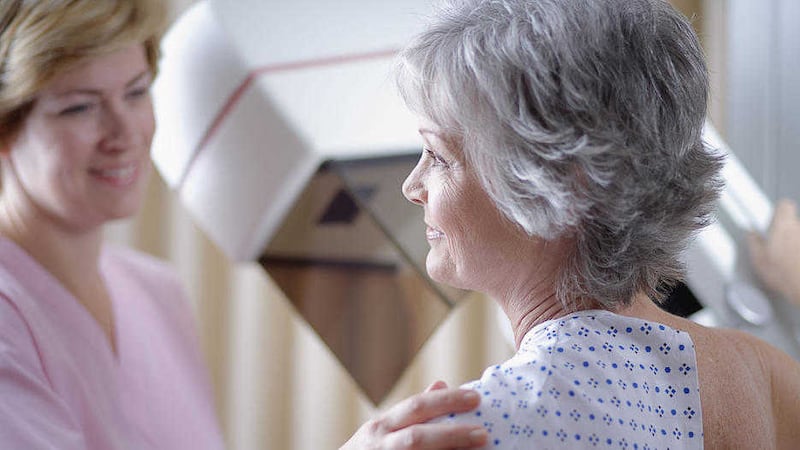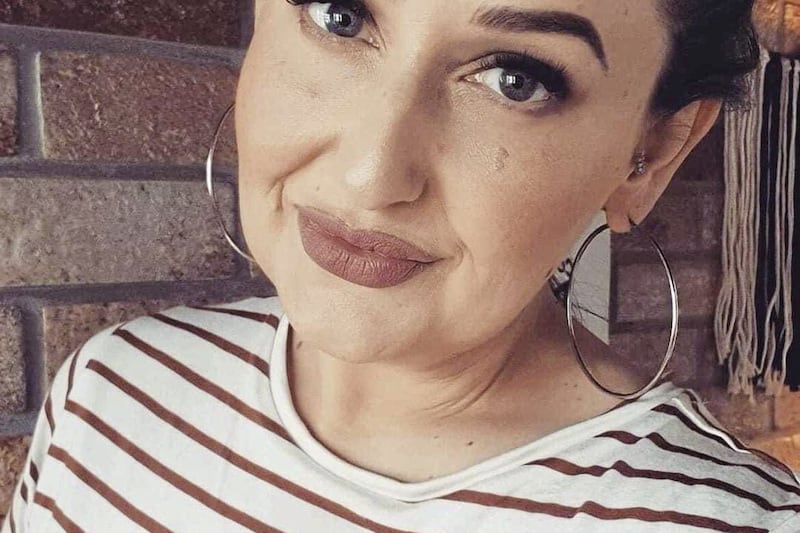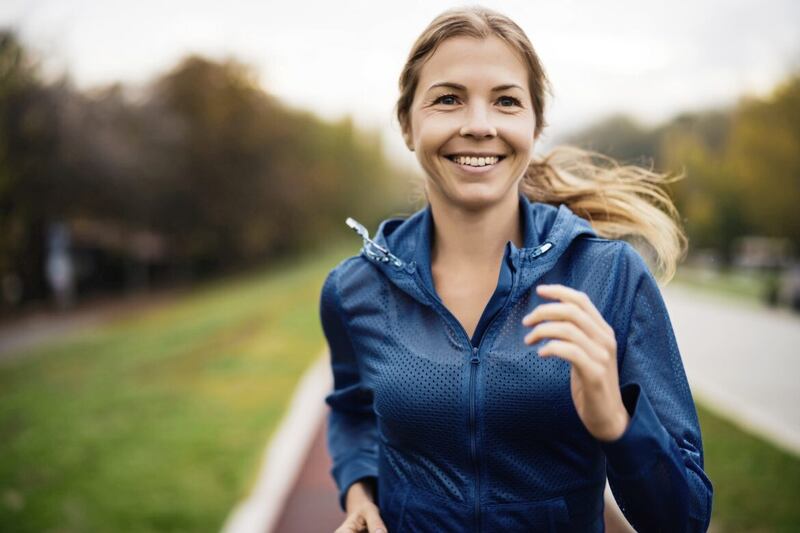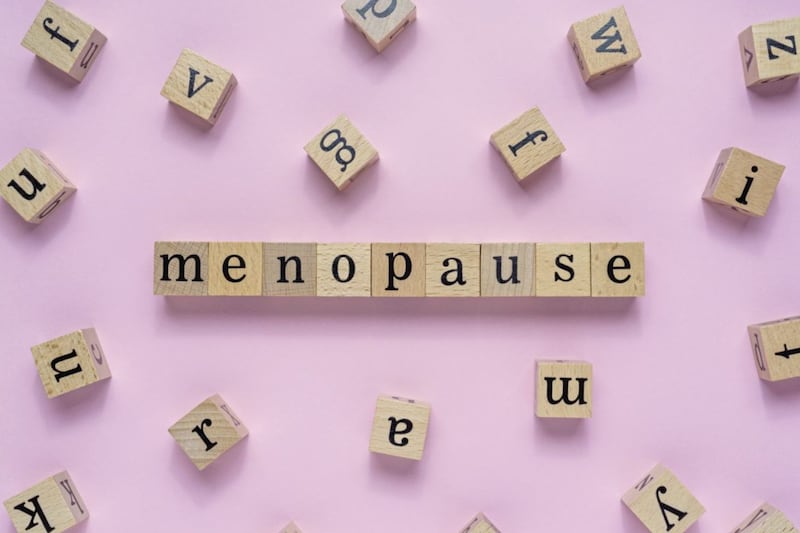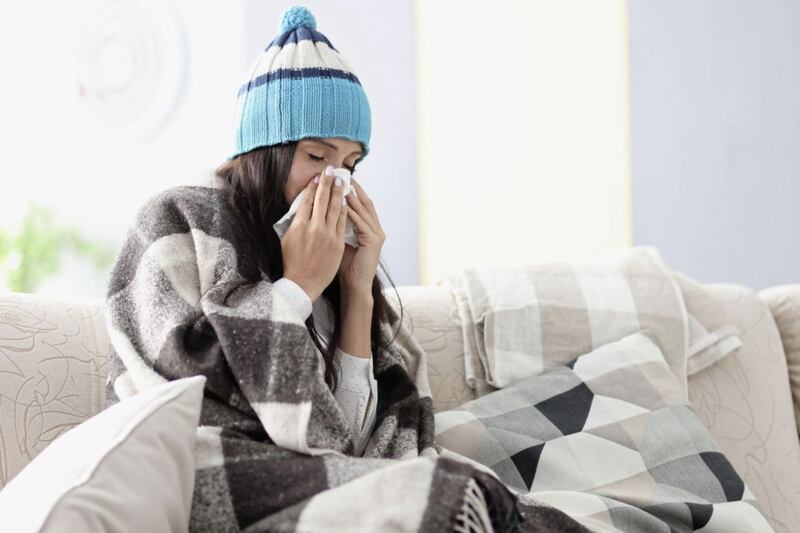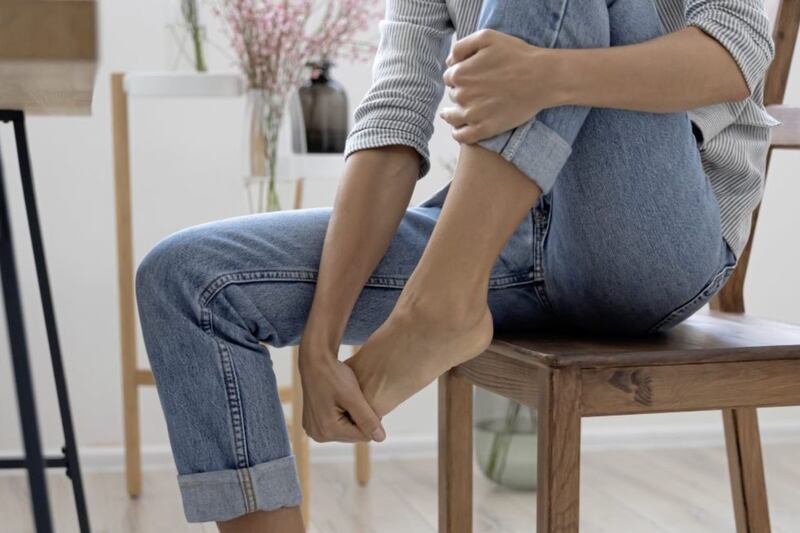LIKE most, Margaret Underwood was aware of the importance of checking her breasts, feeling for lumps and bumps. What she hadn't done for some time though, was have a good look at them – something she thinks is probably quite common for women her age.
While retirement might often be perceived as a time of relaxation and endless free time, Margaret, now 76, was busy, and had other priorities. "And at my age, I don't need a mirror to dress in front of. I have a quick shower, quickly get dressed, and get on with the day.
"So it came as a shock when I actually undressed in front of a mirror trying on a new bra, and noticed the inverted nipple..."
The skin underneath also "looked like orange peel", and tests soon confirmed it was breast cancer.
"Even though I went in convinced of what the diagnosis was going to be, I was absolutely poleaxed; it was devastating. Hearing the word cancer, it makes you go cold. It's something we all dread."
Another shock was the realisation that she could have had those symptoms for a while – a sobering thought, considering survival rates are generally far higher the sooner cancer is detected.
Thankfully, Margaret's treatment was successful, but it was gruelling, involving 12 rounds of chemotherapy, radiotherapy and a precautionary mastectomy.
RANGE OF SYMPTOMS
Spotting breast cancer is about more than checking for lumps. Finding a lump is the most common first symptom reported but for approximately 30 per cent of women diagnosed, according to a 2000 report published in the British Journal of Cancer, it will have been something else that alerted them.
In recent years, campaigns focusing on the range of breast cancer symptoms – which also include pain, thickening in the breast or armpit, changes to the skin, size or shape of the breast, nipple changes or discharge – have helped, but Margaret is concerned that the message might not be getting through to everyone.
"I had read that there were different symptoms, but they were never in the forefront of my mind, I'd never really looked for them. When I started telling people about it [my symptoms], so many of my contemporaries were unaware."
A 2014 survey found that, when asked to name breast cancer symptoms, only 48 per cent of those aged 70 and over identified anything aside from a lump.
Yet, while the disease, of course, also affects younger women and men (it's the most common UK cancer; one in eight women will develop it at some point in their lifetime), age is a key risk factor, with 50-plus females most likely to get it (80 per cent of all cases).
DELAYED DIAGNOSIS
These findings were the subject of the recent 'Be Clear on Cancer' Public Health England campaign. Figures also suggest that older women are more likely to delay going to their GP if they do spot symptoms, and Margaret believes fear can often be a big factor.
Of course, cancer can be terrifying at any age, but for older people – who might be more likely to have seen friends go through major illness, or lost friends and loved ones – fear and avoidance of anything medical might become more of an issue.
"I have had friends who didn't do as they were told, didn't turn up for appointments for whatever reason – most of it was fear," notes Margaret. "They didn't do it to be awkward; they did it because they were scared stiff."
Survival rates have increased, but the UK is still lagging behind, with the fifth highest incidence but 11th highest mortality rate for the disease in the EU.
Early treatment makes a big difference, which applies to older age groups too: for women aged 70 and over, if detected during the earliest stage, 93 per cent will live for at least another five years (dropping to 13 per cent for those diagnosed in the most advanced stages).
LIFE AFTER CANCER
Margaret has also taken part in the new Estee Lauder Companies Breast Cancer Awareness campaign, which this year focuses on 'what happens afterwards?', with an accompanying book, Afterwards, filled with real-life anecdotes and tips. (See bcacampaign.com for details.)
The campaign is aimed at everybody affected but Margaret can vouch for the fact that the need for ongoing support is vital for older age groups too – and indeed the right type of support, as cancer is as much an emotional illness as a physical one.
"And sociological," she says, "because things come to a full stop for a while. You just don't feel well enough to get out and go to places, or you don't want to be seen or talked about – or talked to!
"I think you take on a totally new identity [when you go through cancer]," Margaret adds. "To all my friends, I was the poor, dear soul they looked and shuddered at, or couldn't speak to me because of it. And I'd never known the true meaning of fatigue before..."
For months, you're "on a carousel" of treatment – but things don't snap back to normal once that's over. Sometimes, this is when things get most difficult. The body might be entering recovery, but the mind has a lot of work to do; catching up and processing everything, and adapting to ongoing changes, physical or otherwise. And while we all "moan about our hair", losing it can be devastating – at any age, Margaret adds.
SUPPORT SHORTFALL
On this score, things haven't improved at the same rates as medical treatments, points out Professor Lesley Fallowfield, a leading professor of psycho oncology.
"Awareness of many of the problems they [women with breast cancer] experience has increased, but the numbers of women who experience anxiety, depression and psycho-sexual difficulties has barely changed over the last two decades," Prof Fallowfield says.
"Although survival statistics are better than for many other types of cancer, a breast cancer diagnosis still fills most women with dread... Breast cancer is not a medical emergency, it's an emotional one."
She notes that supportive interventions are now "available to help women through the acute phase of their treatment", which can "aid long-term adjustment".
"The problem is that this help is not always targeted appropriately. Although breast cancer tends to affect more elderly women, there are scanty supportive services aimed at their specific needs, and evidence that they don't always even receive appropriate standard treatment due to ageist, stereotyped views of what older women may or may not want," Prof Fallowfield adds.
"The middle-aged woman may be trapped between preferences about treatment and her responsibilities to other generations, choosing something that will have less effect on her ability to look after grandchildren and aged relatives.
"We need to develop more individualised psychosocial care. Our resources, be that counselling, relaxation therapy, yoga, exercise programmes, or mindfulness training, need to be focused in a targeted fashion according to individual needs of women, if they are to truly benefit."
:: October is Breast Cancer Awareness Month.
